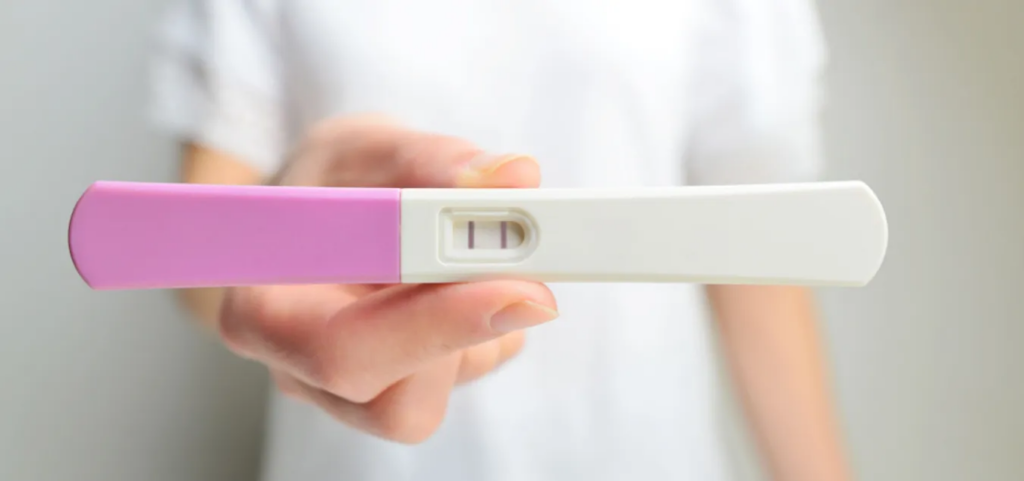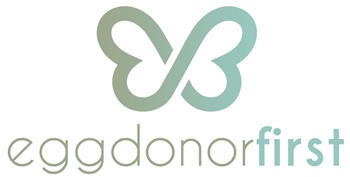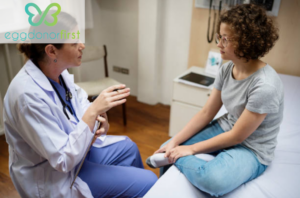Embarking on a pregnancy journey with donor eggs can be a deeply personal and rewarding experience. This path to parenthood offers hope and possibility for many individuals and couples facing infertility challenges. This blog will explore the key aspects of pregnancy with donor eggs, from the initial stages to delivery and beyond.

The Pregnancy Journey with Donor Eggs
The early stages of pregnancy with donor eggs are generally similar to those conceived with one’s own eggs. After the successful implantation of the embryo, you may experience early pregnancy symptoms such as:
- Nausea and vomiting: Commonly known as “morning sickness,” these symptoms can occur at any time of day.
- Fatigue: Feeling tired is a common early pregnancy symptom.
- Tender breasts: Hormonal changes can cause breast tenderness and sensitivity.
Prenatal care is crucial throughout the pregnancy. Regular checkups with your obstetrician/gynecologist will allow for monitoring of your health and the developing baby.
The second and third trimesters of pregnancy with donor eggs typically progress similarly to any other pregnancy. You may experience:
- Fetal growth and development: You’ll likely feel your baby move during the second trimester.
- Weight gain: Weight gain is a natural part of pregnancy. Your doctor can provide personalized guidance on healthy weight gain.
- Preparing for childbirth: You’ll begin preparing for childbirth, which may include attending childbirth classes, choosing a hospital or birthing center, and making decisions about pain management.
Addressing Potential Concerns
Emotional Considerations
Using donor eggs can evoke a range of emotions. Some women may experience feelings of grief or loss, particularly during early pregnancy. It’s important to acknowledge and address these emotions.
Bonding with the Child
Many women wonder if using donor eggs will affect their ability to bond with their child. It’s important to remember that strong parent-child bonds develop through nurturing and interaction, regardless of how a child is conceived. Engaging in prenatal bonding activities such as talking to your baby, reading to them, and feeling their movements can help strengthen your connection.
Telling the Child About Their Origins
How and when to discuss the use of donor eggs with your child is a personal decision. It’s important to be honest and age-appropriate in your explanations. Many families find it helpful to create a “family story” that incorporates the use of donor eggs in a way that is meaningful and understandable for their child.
Tips for a Healthy Pregnancy
Prenatal Care
Adhere to your doctor’s recommendations for prenatal care, including regular checkups, prenatal vitamins, and healthy dietary choices.
Stress Management
Stress can impact both your physical and emotional well-being during pregnancy. Incorporate stress management techniques such as relaxation exercises, yoga, or meditation into your daily routine.
Build a Support System
Surround yourself with a strong support system of family, friends, or support groups for intended parents using donor eggs. Connecting with others who understand the unique aspects of this journey can provide valuable emotional support and encouragement.
Conclusion
Pregnancy with donor eggs can be a fulfilling and rewarding experience. By focusing on your health, nurturing your emotional well-being, and building a strong support system, you can navigate this journey with confidence and joy.





